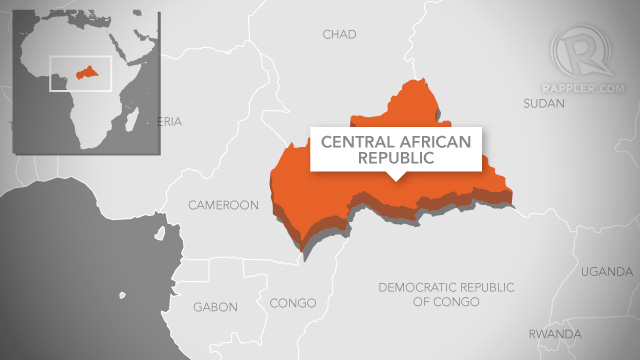SUMMARY
This is AI generated summarization, which may have errors. For context, always refer to the full article.

BOUAR, Central African Republic – A food crisis is looming in the Central African Republic after nearly a year of inter-religious violence, a UN humanitarian official warned Sunday, March 2.
“It is now that the humanitarian crisis will start to deepen,” said Abdou Dieng, the United Nations’ humanitarian coordinator in the impoverished country.
“If we don’t pay attention, we will soon see people dying of hunger,” Dieng told AFP after visiting the market town of Bouar in the far west of the country the size of France.
“It is now that we must act. Seeds must be planted now, before the rainy season starts. What’s more, the rains will cut off some areas,” Dieng said.
“The poverty is extreme here,” he said. “People are too afraid to go home, farmers don’t tend their crops. Those who have been given seeds are eating them because they haven’t any choice.”
The former French colony was thrown into chaos after rebels from the mainly Muslim Seleka group seized power in a March 2013 coup, after which some mounted a campaign of abuses, prompting the formation of Christian-dominated vigilante groups.
Thousands have been killed in the unrest and around a quarter of the country’s 4.6 million people have been displaced.
Improved enormously
The country’s interim president, Catherine Samba Panza, said for her part on Sunday that the worst had been averted since she was appointed a month ago to replace coup leader Michel Djotodia, who failed to rein in his fighters after taking office.
“There was a fear of a general conflagration, of civil war… (but) things have improved enormously,” she told French radio.
“The lack of security in (the capital) Bangui… cannot be fixed overnight,” she acknowledged, adding: “There are always spikes in violence, but things are getting better.”
But Dieng painted a picture of dysfunction: public services are vanishing as civil servants have stopped being paid; children are not attending school; and running water is becoming scarce.
The unrest has compounded longstanding economic problems, he said, noting that many of the Muslims who fled had been truck drivers who took goods to market, and many others were shopkeepers who left behind stores that were looted and torched.
The UN official said that while the peacekeeping forces — comprising 6,000 African and 2,000 French troops — “understand the urgency”, funds pledged by the international community are slow to materialise.
Only one-fifth of $500 million (360 million euros) pledged at a January 20 donor conference in Brussels has come in, he said.
“One of the main priorities for resolving the crisis is to pay the salaries…. Money must be injected into this country because right now everything is at a standstill,” Dieng said.
Samba Panza acknowledged that civil servants have not been paid for five months, saying: “State authority hardly exists anymore.”
The former mayor of Bangui also said she wanted to combat the impunity enjoyed by looters and extortionists, while lamenting a “complete breakdown” of the judicial system.
“Up-country we have no more judges, they are all in Bangui for security reasons. There’s no more prison, paramilitary police are practically non-existent, police stations… have practically disappeared.”
The country’s first woman leader also reiterated a call for a 10,000-strong UN peacekeeping force in addition to the 8,000 foreign boots already on the ground. – Rappler.com
Add a comment
How does this make you feel?
There are no comments yet. Add your comment to start the conversation.